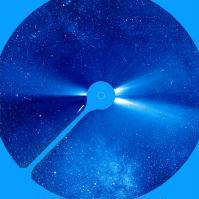What if there were no moon?
2000/10/29 Kortabarria Olabarria, Beñardo - Elhuyar Zientzia
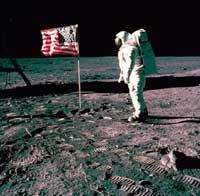
If we begin to answer the question from the scientific point of view, the tides previously damaged. In fact, one of the main influences of the Moon on Earth are the pleamares and the bajamares. And if there were no moon, there would be no tide either? Yes, yes, but otherwise. Tides are because the force of gravity between both bodies, the Earth and the Moon, decreases with distance. Gravity is a universal force of attraction between the elements that make up matter. Gravity pulls more of nearby objects than distant ones, so at all times the seas closest to the Moon rise.
In 1897 George Darwin, son of Charles, threw the Moon away from us in spiral. His hypothesis was confirmed in 1969 by the astronauts of Apollo 12. The Moon moves 5 centimeters each year. If neither the Earth nor the Moon had rotation and the Sun did not affect the formation of tides, one of the ocean's prayers would be between the Moon and Earth, while the other would be located in the area of the Earth contrary to the Moon.
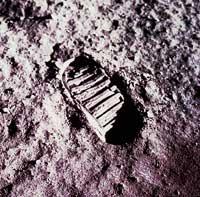
Try to approach the pleamar closest to the Moon, while the one farther away. Consequently, the pleamari tend to the west, meeting continents and islands. These earth masses, due to rotation, are moving eastward, so the rotation itself decreases. Therefore, the day is elongating 0.0002 seconds per century. That's not much, but in millions of years there's something. Having a slower rotation speed means that the Earth moved faster. According to geologists, when it was formed, the rotation speed of the earth was four times higher than the current one, and the day — therefore — was four parts shorter, about 6 hours.
So the Moon is escaping, but it is still there. But, as we have said before, if there were no Moon, would there be no tide either? They would be because the Sun is there. Still today one of those responsible for the tides, with a third responsibility, is the Sun.
Another characteristic of the Earth without a moon would be the wind, much stronger than the current one. In fact, at higher rotation speed, more wind blows on the planets. In Jupiter, for example, that is very evident. Jupiter makes a lap every
10 hours. The winds there strong, with predominantly east-west directions, while currently the prevailing winds on Earth are generally from north to south. The wind speed on Jupiter is 160 to 320 kilometers per hour.
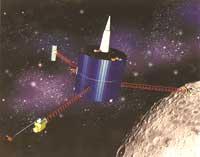
On Earth without Moon the situation would be similar, the wind would move mainly from east to south and at an approximate speed of 160 kilometers per hour. Of course, hurricanes would move much faster.
And in this situation would there be life? The question is logical, you decide how it is. In fact, the chemicals that made life possible were concentrated in the ancient oceans. Evolution began with the effect of solar radiation. On Earth without the moon the radiation of the Sun would be the same, but the chemicals would not be so abundant. The tides would be so small that the oceans would be poor. Most chemicals come from the movement of river waters. Today rivers also have that function, but if compared to the influence of the seas on this task, it can be said that it is little. Therefore, as chemicals in the sea would be relatively scarce, life, as
it is known today, would not be so evolved.
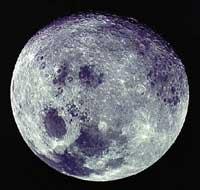
However, do not think that evolution would be paralyzed, much less. Strong winds and shorter days should influence evolution by will and desire. It is only a matter of logic. Due to the action of the wind, high lifestyles, which by themselves are not able to stand or have difficulties, would not develop so much. For example, in such a living environment it would be difficult to develop palm trees, since having a superficial root, the wind would immediately throw them out. Likewise, the beings living in the trees would have problems, since the trees themselves would move much more. This does not mean, however, that monkeys or animals similar to monkeys could not live, but should adapt better to live in the trees. Logically, the brain of these animals should be more developed, etc.
The differences would also be greater: there would be no eclipse, the night sky would be darker, some animals would have a noticeable influence, some beings who live at night would not be like today, man would never reach the Moon, etc. F. Neil The American physicist and astronomer What if the Moon Didn't is? What if there were no Moon? He has written about all this in the book entitled “Towards the different lands that could exist”.
Published in 7

Gai honi buruzko eduki gehiago
Elhuyarrek garatutako teknologia





